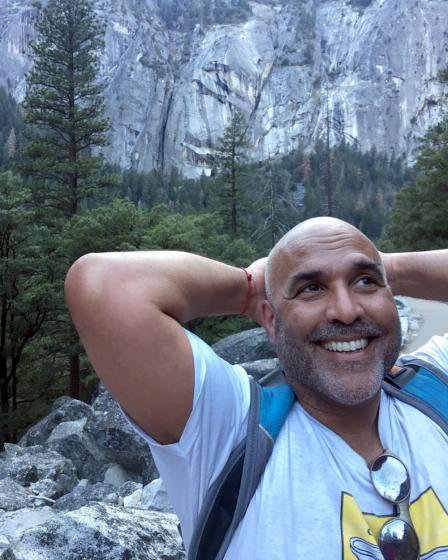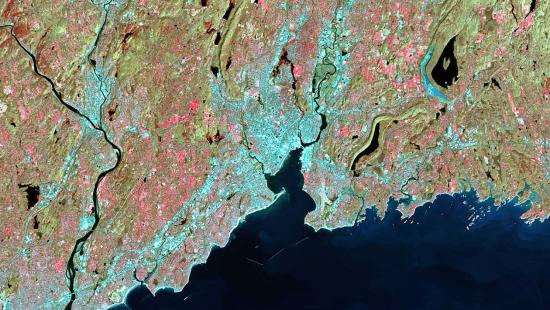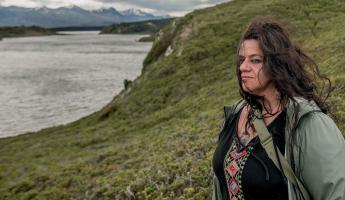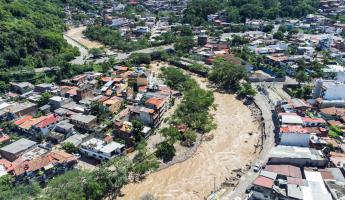

The modern environmental justice movement in the United States traces its roots back to the 1980s when protests over a toxic waste landfill in largely rural, Black, and low-income Warren County, North Carolina, garnered national media attention and served as the catalyst for research finding that race was often the single most important factor in predicting where toxic waste facilities were located in the U.S. Michel Gelobter, the inaugural executive director of the Yale Center for Environmental Justice at YSE, who was involved in some of the early launches of environmental engagement by faith organizations in the Black Baptist and Jewish communities, and many others, can trace his own roots in environmental justice back to those early days.
“I was the de facto ‘policy wonk’ for the EJ movement around the country for almost a decade,” Gelobter says, noting that he was the first PhD candidate in the country to complete a dissertation in environmental justice. “The most rewarding part was translating my policy and scientific knowledge into ways that helped impacted communities accelerate the relief they needed from environmental onslaughts.”
“We are thrilled to have Michel joining our team,” says Gerald Torres, the founder of YCEJ and a professor of environmental justice at YSE with a joint appointment to the Yale School of Law. “He not only brings a deep understanding of the issues in environmental justice, but he also brings a wealth of managerial expertise. The widespread enthusiasm that greeted his appointment was deeply gratifying. He will be the leader we need, and I look forward to working closely with him.”
In addition to his work in environmental justice, Gelobter’s career has included positions in government, academia, business, and advocacy. He also is the author of “Lean Startups for Social Change: The Revolutionary Path to Big Impact,” which explains how to apply business theories to social sector projects.
Gelobter, whose position is jointly sponsored by the Yale School of the Environment, Yale Law School, and the Yale Center for the Study of Race, Indigeneity, and Transnational Migration, recently talked with YSE news about the biggest issues in environmental justice today, how he plans to use his broad-based experience to advance the center’s goals, and developments in the environmental justice field that make him optimistic about the future.
Q: What do you see as the biggest issues in environmental justice today?
The obvious answer is climate change. At its very core, this is a justice issue. It is a question of how we're treating the next generation and the kind of planet we’re passing on to them. Climate change disproportionately affects low-income, marginalized, and Indigenous communities, and communities of color in the United States and around the world. If we can get the scourge of fossil fuel out of our lives, it will help solve climate change and a plethora of other environmental justice issues.
Q: What are your goals as the inaugural director of YCEJ?
I’m excited about helping to build a place that allows students to do amazing things for the world and bring together the incredibly diverse faculty Yale has working in this space.
I’d love nothing more than for the center to be a place where people get to make real their most interesting ideas about environmental and climate justice solutions. Culture, art, and engineering are all going to play critical roles in solving these problems.
Q: How has your broad-based experience in nonprofits, startups, and government shaped your environmental justice work?
Much of the time when I work with folks, there are roadblocks that they face in how to crack a particular problem or how to approach an issue. Because I’ve seen how businesspeople solve problems, how we solve problems in academia, how policymakers solve problems, I tend to have a more diverse set of ideas about ways to test and to scale innovative approaches.
Q: Are there any developments in the environmental justice field that you are particularly excited about or that you view as a source of hope?
The most inspiring thing is the huge number of people taking these issues seriously and innovating solutions today. The diversity in the types of action and the types of actors is mind-boggling. There was a time when it wasn't hard for me to imagine knowing almost everybody who did work on climate change in the whole world. And now it's impossible. And I am delighted by the surprises that are being generated every day from all that activity, creativity, and spirit.



